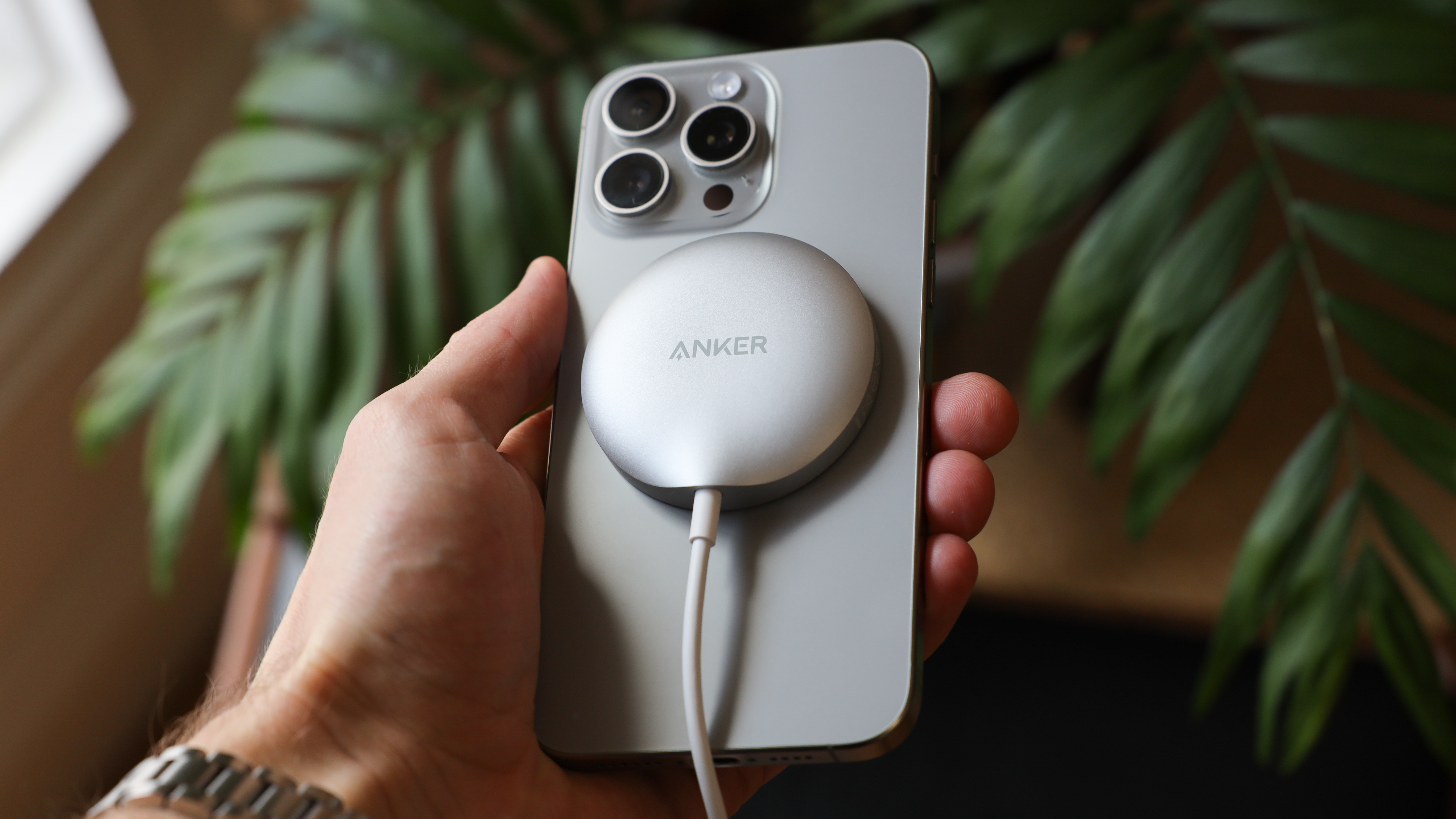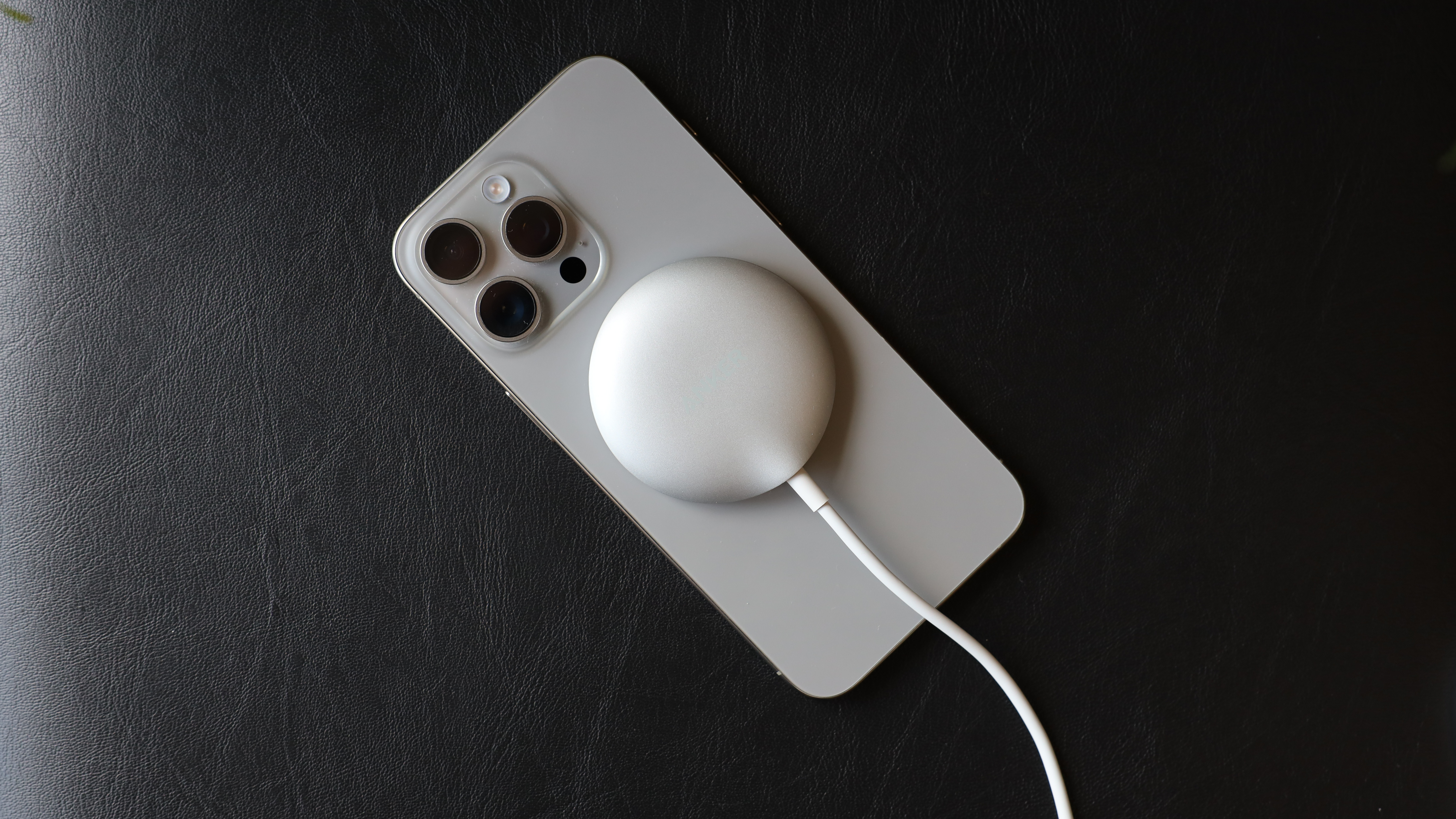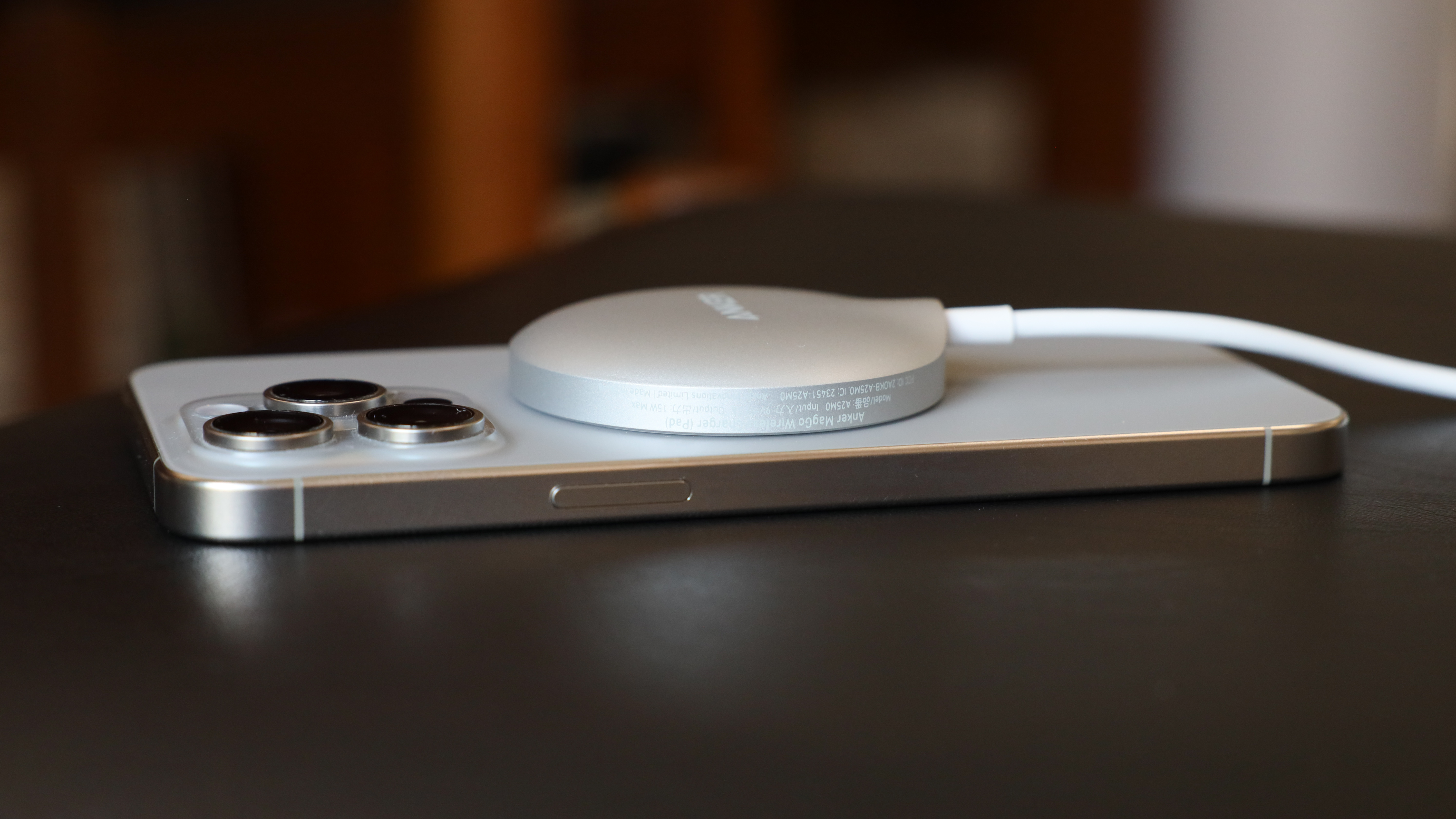
Wireless charging keeps improving, and Apple has been at the forefront with its devices, being the first company to push out phones that use magnetic charging, or as it dubbed it – MagSafe. Although the rest of the industry will be catching up soon as the collective final design is approved for the Qi2 charging standard.
In Apple’s last couple of generations of iPhones, the company has upped the speeds of its MagSafe charging, incorporating wireless charging speeds of up to 15W, although this does still pale in comparison to what some Android phones are capable of – although without a magnetic connection.
Luckily, Apple does license out its MagSafe certification to any chargers hoping to achieve the iPhone's top wireless charging speeds. Anker has just launched its range of MagGo chargers and power banks, building on its existing range to not only take advantage of the iPhone’s top charging but to be ready for the rollout of the new Qi2 standard.
The simplest of Anker’s new range is the Anker MagGo Wireless Charging Pad, which is a small magnetic puck that can be attached to the back of an iPhone, and then plugged into any USB-C power source.
With faster speeds, new chips, and new algorithms built into the MagGo charger, Anker promises its new charger will be faster and smarter than before, claiming its own Wireless PowerIQ enables an iPhone to charge from 0 to 25% almost three times faster than a 7.5W wireless charger.

Anker MagGo Pad: Specifications
Anker MagGo Pad: Price
The Anker MagGo Wireless Charging Pad costs $29.99 / £29.99 at launch, although if you are happy to wait, you are likely to find regular discounts on the device if Anker’s previous record is anything to go by. This is less than Apple's own MagSafe charger, although Apple's charger can also be found often discounted on Amazon.
Anker MagGo Pad: Design & Handling
There isn’t much to shout about with the design of this charger, it is just a small minimalist silver and white puck (or is also available in black). The design is nice, and when not in use, it certainly doesn’t look bad just sitting on my side table.
The pad is a little heavier than I expected, it only weighs 94g, but just for its small size, it has a little bit of surprising heft to it. This is most likely due to the aluminum enclosure used for the charger, although Anker says that using aluminum improves heat dissipation while charging. When held with an iPhone Pro Max also in hand though, there is only a little noticeable weight added. The one thing I think this design is missing however is a little stand to prop your phone up while it charges.

The charger also doesn’t really get in the way too much, sure there is a bump to navigate your hand around, but the smooth back and curved edges of the MagGo pad fitted comfortably in my palm while I used my phone. The magnets also did their job well, the pad is very easy to align and also stayed stuck to the phone without sliding around.
The wire is also a good length for moving around somewhat comfortably depending on where your USB-C plug is located. Mine was almost at ground level, but I could easily stand with my phone in my hand without pulling on the wire.
One of my main issues with this kind of device though is you really have to want to charge your phone wirelessly. Attaching the MagGo charger to my iPhone really wasn’t much less effort than just plugging a USB-C cable into the bottom of the device. USB-C charging is faster, the cables are cheaper, easier to tuck away, the same cable can charge a huge range of devices, and can be bought in multiple lengths. I am just really not convinced this particular wireless charger is all that necessary.

Anker MagGo Pad: Performance
The MagGo Wireless Charging Pad had a simple job to execute – just charge a single iPhone at 15W. Luckily it does that job well.
I tested the charger with an iPhone 15 Pro Max, which using the Anker MagGo pad managed to charge from low single digits to full in a little over two hours. During this test, I was not using the iPhone, which would have added an additional power draw and taken longer to complete the charge, but the phone was switched on and connected to WiFi.
For wireless charging this is a good time, although still can’t compete with the speeds of wired charging that can reach almost twice the 15W MagSafe rate on the iPhone (and even higher on some Android phones). So if wireless charging is for you depends on if you prioritise convenience or speed when charging your devices.
The charger did get reasonably hot, and when it was enclosed and insulated in my palm while using the phone, it did get considerably warmer, but not to a concerning degree. Wireless charging does generate a lot of heat and can be disconcerting, but Anker has a pretty reliable safety record by all accounts and does promise its devices are constantly monitoring for unsafe temperatures. I didn't notice any obvious throttling of the charging speed as the device got warmer, but this is not always obvious as charging slows down as the battery gets fuller.

Anker MagGo Pad: Verdict
If you are looking for a simple wireless charger that will charge a single iPhone at max MagSafe speeds then the Anker MagGo Wireless Charging Pad is the one to buy. When charging my iPhone 15 Pro Max it performed very well, achieving fast wireless charging rates, the pad gets a little warm but not concerningly hot. The MagGo pad itself is also well-designed with premium-feeling aluminum and a classy look.
Whether you actually need a wireless charger like this is dependent on how you like to charge, as I don’t think it is much more convenient than just using a USB-C cable, which will also charge your iPhone faster. But for the snap-on and snap-off convenience of wireless charging, there is no beating it, especially when it comes to price, with Apple’s own brand wireless charging pad coming in at a higher cost.







